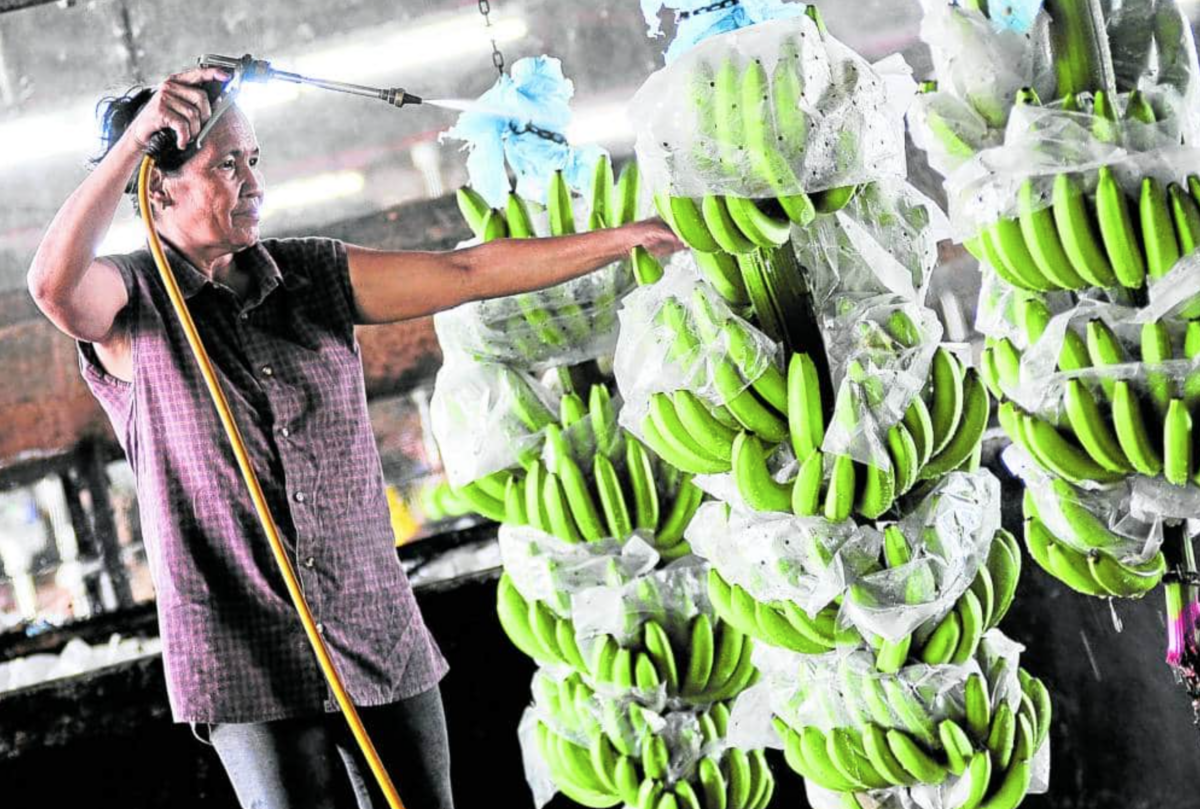PH slips to No. 4 in banana export ranking
The Philippines dropped by one notch to fourth place among the world’s top global banana exporters in 2024 as shipments fell by 3 percent due to inclement weather and a plant disease outbreak.
In a report, the United Nations’ Food and Agriculture Organization (FAO) said the country’s ranking as banana producer had fallen from third in 2023 to fourth last year, trailing behind Ecuador, Guatemala and Colombia.
However, the Philippines remains the leading banana exporter in Asia.
READ: To the trade secretary, please save our bananas
In 2024, the country’s volume was even lower than the 3.216 million tons recorded between 2018 and 2022.
Deliveries from the archipelago declined to 2.278 million tons in 2024, down from 2.35 million tons a year prior. The FAO noted that it continued to be affected by the spread of Banana Fusarium Wilt Tropical Race 4 (TR4) disease.
Citing information from the Pilipino Banana Growers and Exporters Association, the report said only 51,000 out of the original 89 000 hectares of land available for banana cultivation in Mindanao, the country’s key banana-producing region, continued to be productive, with the rest infected by TR4 fusarium in the soil.
The group “further reported that rising geopolitical tensions in the South China Sea additionally affected some exports of Philippine bananas,” it said.
Danilo Fausto, president of the Philippine Chamber of Agriculture and Food Inc., said that aside from TR4, the sector was also affected by rainfall, flooding, drought and hurricane, alongside high input costs and logistical issues.
When asked whether the country could recover from these challenges, Fausto said, “I’m afraid we cannot show optimism until we find scientific solutions and improved technology approaches to food production.”
TR4 is a deadly plant disease caused by a fungus that attacks the roots of banana plants.
“The fungus affects many varieties including cavendish bananas, which provide around half of global banana supply and almost all of the bananas exported,” the FAO said.
The country’s banana exports mirrored the global banana trade, which was estimated to have dropped by 1 percent to 19.1 million tons in 2024, affected by adverse weather conditions and the prevalence of plant pests and diseases.
“Higher supplies were reported from Colombia, India and Vietnam during the first eight months of the year, where production growth was seen on the back of higher investments in production expansion and favorable climatic conditions,” the FAO said.
“Conversely, adverse temperatures, excessive rainfall and the passing of tropical storms reduced supplies available for export from Costa Rica, the Dominican Republic, Ecuador, Guatemala and Mexico,” it added.
Furthermore, the FAO said the devastating spread of TR4 in the Philippines and its alarming presence in the Bolivarian Republic of Venezuela and Peru had caused further production losses as well as financial strain from the substantial costs associated with disease prevention.

